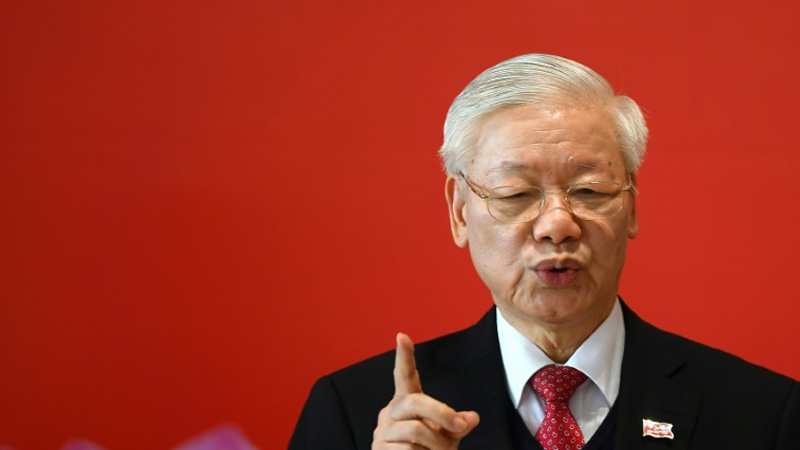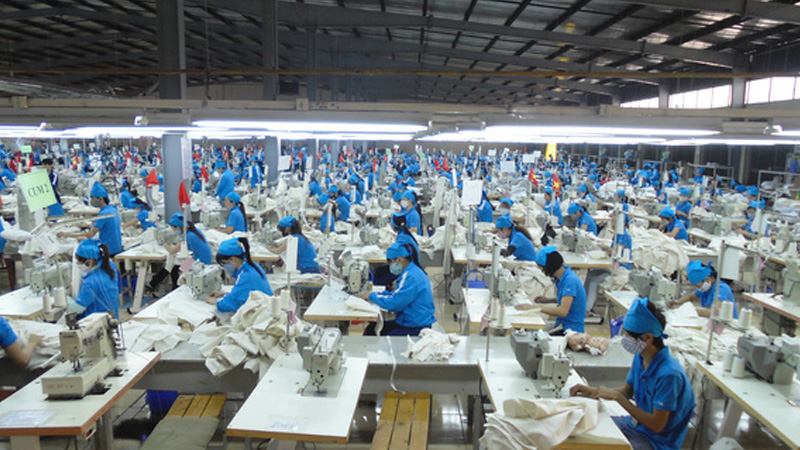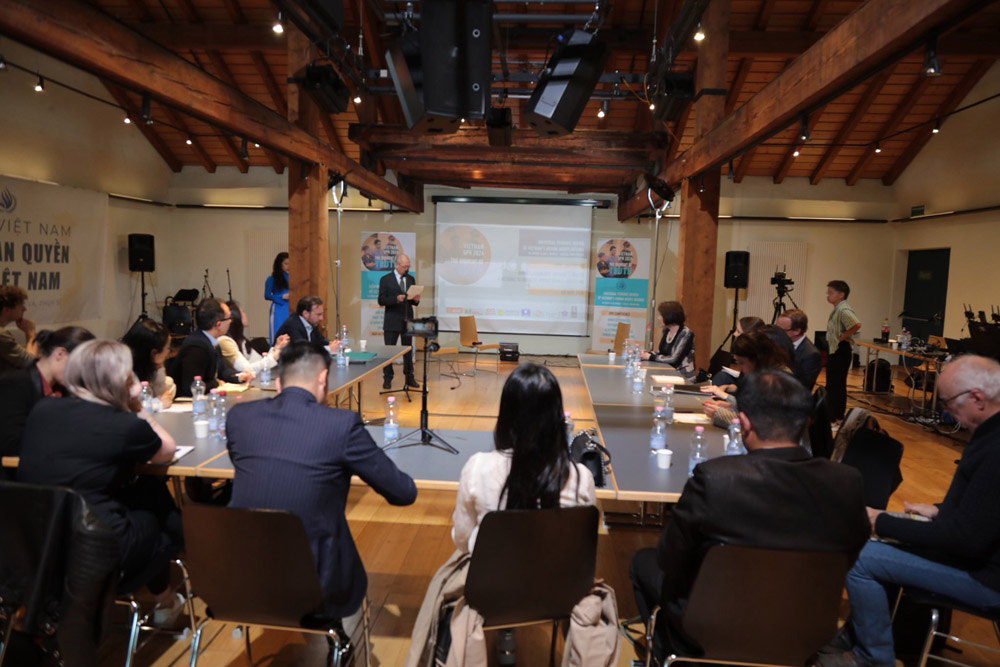Vietnam at a crossroads; after 30 years of One-party, authoritarian dictatorship, Vietnam must choose to reform its political structure or continue to fall behind the pace of development of the rest of the world.
I am a Vietnamese male, born after the end of the Vietnam Civil War. Hence, naturally, I have no memories and scars of the horrible war that tore my country apart and have since destroyed the highest Vietnamese spirit of “đồng bào” among my people. I’ve heard of stories of North Vietnamese communist brutalities and injustices (Land Reform of the early 1950s in the North, the Ba Dinh Square power coup, etc.) and Ho Chi Minh’s deceived patriotic idealism and false liberation promises. Recently declassified Soviet documents now offer factual evidence that Ho Chi Minh was merely a communist agent in Southeast Asia, not a true nationalist. In 1927, in an announcement to the Comintern (Communist International) Executive Committee, Ho Chi Minh declared, “I intend to form a national Indochinese revolutionary movement whose leaders will introduce its members to communism.” Placing communist ideology above nationalism, Ho Chi Minh, in order to secure stability and legitimacy for his communist movement, would go on to mislead and betray other nationalistic revolutionary groups to the French. A true Nationalist would never sell out his own people to secure his own self-interested ideologies, especially when that ideology is something totally foreign to Vietnam.
I’ve also read of some South Vietnamese government’s corrupt and incompetent leaders (Ngo Dinh Nhu, Nguyen Cao Ky, etc.), which, among other things, are indirect reasons why my generation has to grow up in a country not of our own. I’m also aware of the U.S. government’s betrayal of the Vietnamese people at the 1973 Paris Peace talks, the secret deals and lies of Nixon and Kissinger in 1968, as well as the inept, incompetent and misinformed decisions of the Kennedy and Johnson administrations that led to an escalation of the war in 1965. What ought to be undeniable, but is often forgotten during this era, are the pure intentions of the average Vietnamese soldier, both North and South, who fought courageously with a true, altruistic Vietnamese heart. Those were the true heroes of this war. Another neglected group of forgotten heroes are the people who did not want to get caught up in North-South struggle, but chose to take a stance against both. Groups like the Unified Buddhist Church and their Struggle Movement, people like Trinh Cong Son and his “Ca Khúc Da Vàng,” were heroes who were not a part of the anti-north, anti-south hatred. They were simply part of the pro-Vietnamese, pro-peace movement, who, in the end, were also chastised and betrayed. In the end, the real victims are the Vietnamese people in that and all generations to follow.
Today, I’m not looking to blame or make apologies. Right or wrong is of little significance now. Both sides have their reasons. Vamik Volkan, an expert of the psychology of wars and conflicts, in his “Chosen Trauma theory,” posits that after a war, each side will choose to remember what hurt them most. When we think of the war, and recollect of all the cruelties the communists have committed, we choose to remember the Tet Offensive in Hue or inhumanity of the post-war “re-education camps (jails really)”, while the Northerners will bring up the fact that more American bombs were dropped on the North than in all of WW I and WW II combined. Who’s right? Who’s wrong? It really doesn’t matter anymore. After 30 years, if we truly love and care for Vietnam, we must leave the sorrows of war behind us and strategize the prospects of reforming and modernizing Vietnam. We must diagram a social, economic, cultural, and political roadmap to take our country into the 21st century. When I talk of reforming Vietnam, some people say, “well, we can’t do anything with the communist in control of the country right now.” My answer to that is, “So what, if they’re in control?” The longer we wait, the further our country will fall behind the rest of the world. If we don’t begin this work, who will? Nobody, no regime, no government, no party can dictate to me how I should or should not act towards my country and my people.
Vietnam’s lack of development did not just begin with the communist, albeit a corrupt one-party system contributed to its perpetuation. It began with the French’s domination of our people. Since then, we’ve gone through social domination, political revolutions against imperialism, our own stupid Civil War in which we were Cold-War pawns to the world’s hegemons, and now, self-interested one-party rule that seeks to destroy any voice of dissent, spoils any salute to individual sovereignty, and suppresses any form of resistance.
Imagine a train going in the opposite direction of where it’s supposed to go. Then picture a man inside the train running as fast as he can against the direction of the train. He can run as fast as he is able to, but in the end, he is still going in the wrong direction. This image is Vietnam’s reality today. As long as there is a one party system, our country will continue to go in the opposite direction as the rest of the world, no matter how hard working or altruistic the people’s intentions are. There is not a single developed country in the world whose people do not have a voice, a choice, in its leadership, its policies, its future. On the contrary, all countries with authoritarian socialist governments are models for underdevelopment, corruption, social inequality, lack of human rights, and instability. After 30 years, the Vietnamese government, the Vietnamese Diaspora, the Vietnamese people have got to wake up! We have got to get our train going in the same direction as the rest of the world.
A country’s government ought to be of, for and by the people. In Vietnam, it is of and by party members… for the Vietnamese people, allegedly. So, five percent of the population is supposed to know what’s best for the other 95%? Even if someone who is talented, educated, passionate and willing to contribute to the country, he/she cannot do so based on the current system. To affect any changes, to influence any policies, to advocate for any reforms, you must become a party member first. The problem is, once a person becomes a party member, that person becomes part of the elite. They would not dare go against the party or they risk losing everything they have. So, the current system breeds an attitude of exclusivity, cronyism, corruption, elitism, and arrogance.
I point out one comical thing about the Vietnamese communist government. In Vietnam, the government makes sure everything is of the people: the people’s court, the people’s newspaper, the people’s opera house, the people’s post office, etc. But what is the only thing that belongs to the State? The Bank . . . the State Bank of Vietnam. They can fool the people into believing that everything is theirs, but they want to make sure that the people know the money belongs to the State, which is controlled by the party.
Something needs to change in Vietnam and it needs to change now. How can countries like Japan, South Korea, Taiwan, Malaysia and Singapore, which do not have nearly the amount of natural resources as Vietnam does, become so much more advanced and developed? Of course we always hear of the “we-are-in-a-post-war-phase” excuse. After 30 years, this excuse is getting old. Thirty years is plenty of time to show to the Vietnamese people what socialism could and could not achieve. Seung Ho, the chairperson of the World Trade Organization’s Working Group on Vietnam, in a statement made to the Vietnamese delegation, who has been trying to gain WTO membership since 1995, said, “I believe it is my duty to emphasize to the Vietnamese delegation the absolute need to accelerate their laws and enforcement regulations.” While over 75% of the world is trading and developing under fair and transparent laws, Vietnam continues to hold onto its monopoly on social, political, economic, legal, educational, cultural and ideological policies.
After 30 years, it is proven that a one party dominated government cannot properly lead a developing country. It is time that Vietnam accepts differences of opinions, dissenting voices, and modern policies for a modern world. Vietnam must part with authoritarianism and embrace plurality. It is time for the Vietnamese people to look for and welcome a competing party to Vietnam’s ineffective and inefficient age-old one-party rule system. Reform now, or perish. That is the choice Vietnam’s leaders have to make today. But if they don’t change, we, the people, must become the changing agents. We cannot wait. After all it is our country too. Maybe one day, we can truly bring back the meaning of the words “đồng bào” where there is neither communist nor nationalist, neither North nor South, where there is no hatred, only love, and just two words remain: Viet Nam.





